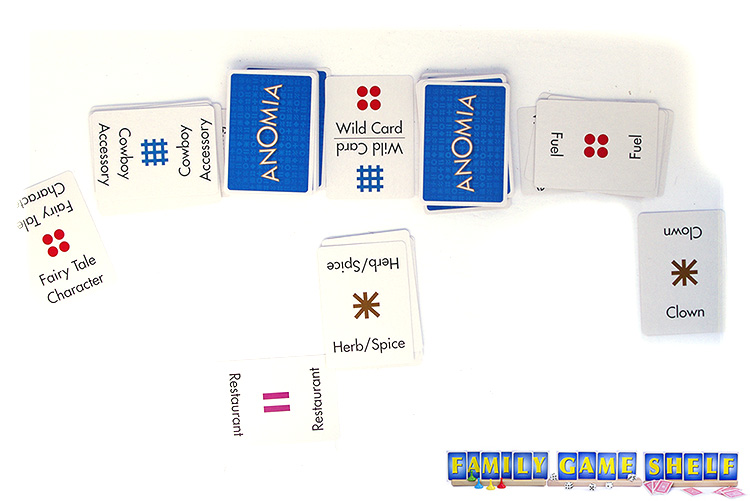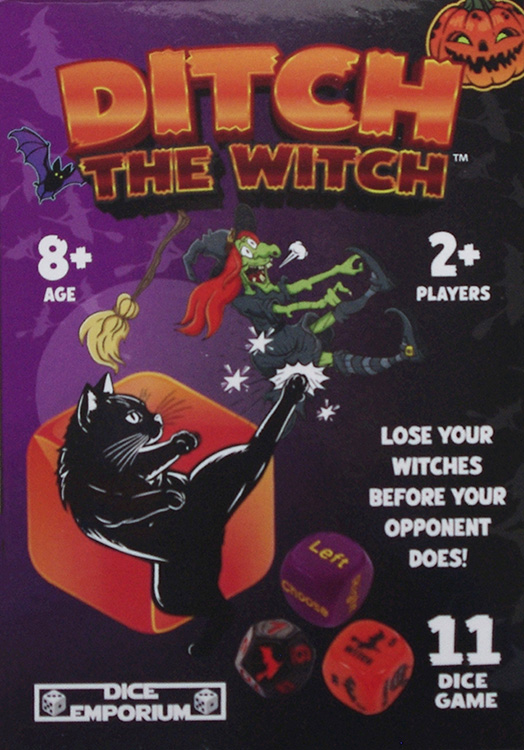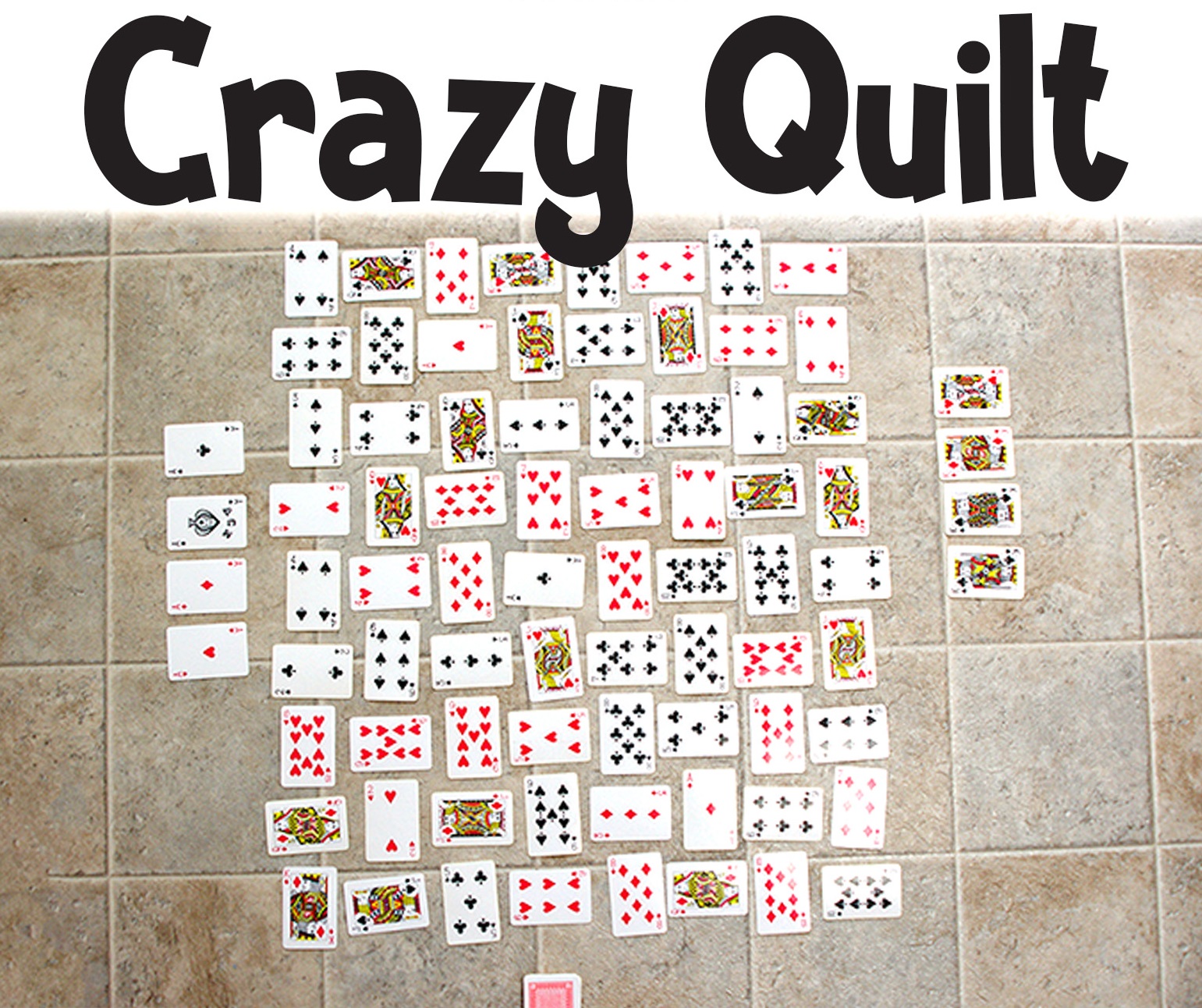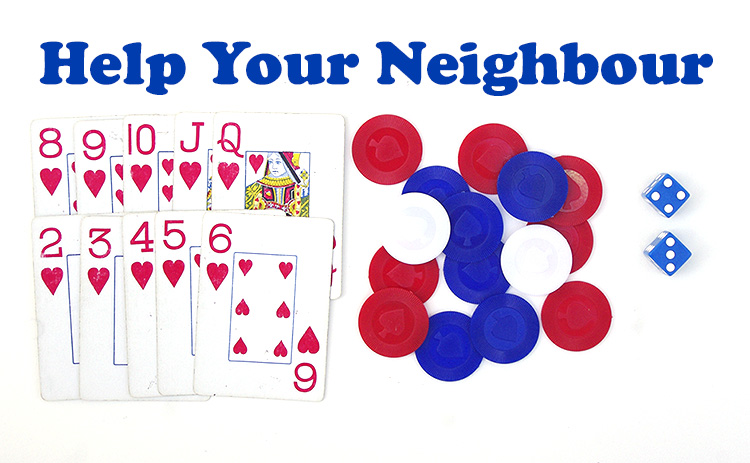Where common knowledge becomes uncommonly fun 3 to 6 players ages 10 and up
Anomia is a Mensa select award winner. It also looked like a lot of fun. I was fortunate to get it for Christmas last year.
Set Up
The set up for Anomia is very simple. Shuffle and set up two draw piles for players to take from.
If you are playing with only three players, it is suggested to remove two of the symbols for more matches while playing.
Playing Anomia
The Anomia cards all have a symbol and a category on them. On your turn, you flip over a card from one of the draw piles and place it in front of you. Next, you need to check to see if the symbol on the card matches any of the other cards in play.

If it matches, then you need to be the first player to say something in the other player’s category. For example, if your card says “Cheese” and it matches a card that says “Ocean” you need to be say the name of an ocean before the player with the matching card can name a type of cheese. The player who finishes saying the answer first, takes the card and places it in her win pile.
If the card doesn’t match, then nothing happens and the next player flips over a new card.

Waterfall Effect
When a player wins a card from a stack, they take the top card and reveal the card directly below it. If that card’s symbol matches another card in play then the first player to say an item in the category wins the card. This continues until there are no symbol matches.
Wild Cards
The wild cards each have two symbols on them. When a player flips over one of these cards, then the card is placed in-between the two draw stacks. Now when two cards that have these symbols on them are showing, players can race to win them.

For example if player A has a brown star and player B has a green plus sign and both are on the showing wild card, then the players race to say an item in the category.
When a new wild card is flipped over, it covers the first and now the two symbols on this new wild card are the ones that can match up.

Ending the Game
When the last card in both draw piles is flipped the game is over.
Winning Anomia
The player with the most cards in their wining pile is the winner.
What We Like
First, the quality of this game is top notch. The cards are thinker than standard playing cards. The size is also great—compact with no wasted space.
Next, we like that it is a trivia game that doesn’t need a lot knowledge. Most people can think of a museum name or a cowboy accessory. It also has a good play time—just right for a trivia game.
What We Don’t Like
First, although the concept is very easy to understand, we find that we’re always questioning how to play. (Maybe we just need to play more.) Second, we find that if you play too many times in a row, answers are repeated.
Next, we find some of the categories a little bit hard. How many sculptors do you know? Most are good put we decided to take some out to make it easier.
Is Anomia Worth It?
The feeling of accomplishment is high when you win a card and block another player however, if you celebrate too much you might miss the next match. Anomia keeps you on your toes and your mind focused. Despite this, the fun factor is not high. If you love word/trivia games than Anomia is an easy, fairly fast addition to your Family Game Shelf.
You can get your copy of Anomia here. Canadians can Shop Anomia here to add it to your family game shelf.
To find more games for your game shelf, check out all our game reviews.
And find game night fun in our card games and dice games.
Rating:


Julia:

Carrie-Anne:

Joel:
Pros: easy, quick
Cons: takes a little of getting use to, repetitive
Mom: memory, good use of random facts






Be the first to reply